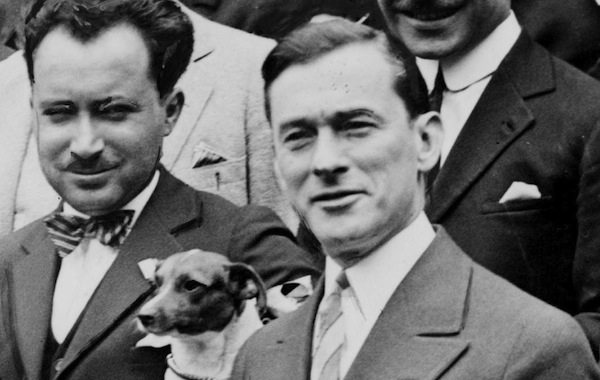
Photo by: Library of Congress
Mayor James Walker left office in 1932 amid a corruption scandal, one of the few people to leave City Hall ahead of time.
For fans of administrative minutiae, the dust-up over whether Public Advocate Letitia James would take on some mayoral powers during Mayor de Blasio’s trip to Italy might recall those heady teenaged days when you memorized the presidential order of succession right down to the secretary of education, batting 15th. (It’s remarkable I wasn’t more popular in middle school, isn’t it?)
New York City’s depth chart is decidedly shallower—the mayor, public advocate and comptroller are the only figures named in the city charter as being in the line of succession, which kicks in if the mayor dies or otherwise leaves office.
The advocate also takes over temporarily “in case of the suspension of the mayor from office, the mayor’s temporary inability to discharge the powers and duties of the office of mayor by reason of sickness or otherwise, or the mayor’s absence from the city,” though they can’t “exercise any power of appointment to or removal from office or any power lawfully delegated by the mayor to a deputy mayor” and can’t sign laws until the mayor’s absence “shall have continued nine days.”
De Blasio is leaving First Deputy Mayor Anthony Shorris in charge, and will be gone for just shy of nine days.
Keeping in mind James’s unfortunate if accurate comment last month that, “If anything should happen to Mayor Bill de Blasio, you’re looking at the next mayor of the City of New York,” mayoral successions are pretty rare. The last two have been the result of corruption scandals, which ushered Jimmy Walker and William O’Dwyer from office in 1932 and 1950, respectively. Earlier, two mayors died in office and one left to become governor.
But the unlikelihood of the event does not mean succession hasn’t been on mayors’ minds. In 1999, when he was eyeing a Senate run that might have forced him to leave office early, Giuiani tried to change the city charter to shorten the time that the public advocate would run the show—an obvious effort to prevent his nemesis, the Public Advocate Mark Green, from getting a real hold on power in Giuliani’s wake.
That effort failed, but in 2002, Mayor Bloomberg got voters to approve a similar change; it calls for a special election within 60 days of the mayoral vacancy under most circumstances. During the mayoral campaign last year, former Mayor Rudy Giuliani praised his former deputy mayor Joe Lhota by saying, “I had to keep him healthy … because if it wasn’t him it would have been Mark Green.”
Few conversations are more awkward than the “here’s-what-to-do-when-I-die” chat, especially when it’s between two political rivals, as the mayor and public advocate will always, to some degree, be.
Still, in a city that’s been a terrorist target on more than one occasion, one wonders if recent mayors have ever conferred even briefly with the No. 2 official about the “what if” scenario. Green told me this week that “[neither Rudy and I—nor our staffs—ever discussed it,” while Betsy Gotbaum, who was public advocate during Bloomberg’s first two terms, said, “No discussion ever.”








